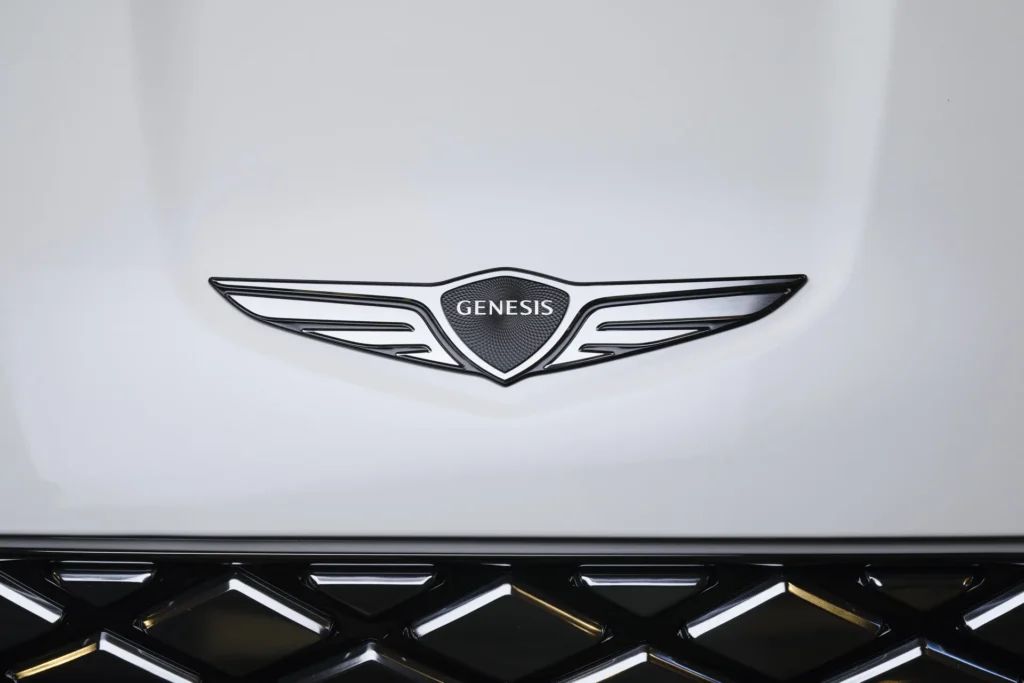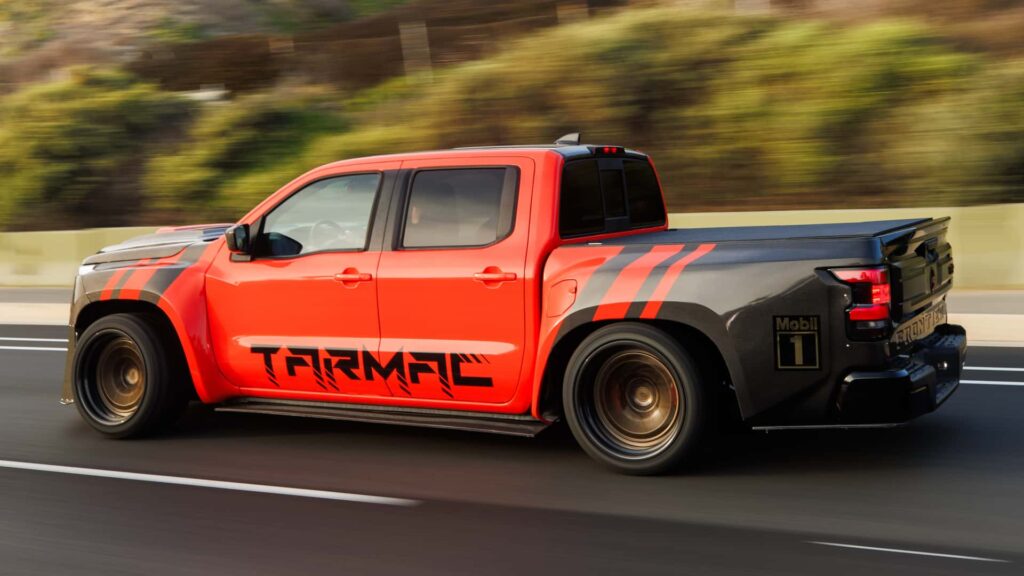- Dedicated investment assures Genesis stays distinct in tech transition
- Genesis SUVs will go hybrid first
- Plug-in range-extended EV models arrive in 2027
Hyundai has in recent months upped its hybrid targets for the next several years, and its Genesis luxury brand is going to be a significant part of it.
The company confirmed in August that Genesis would be adding hybrid versions of all upcoming models on a global basis, excluding dedicated EVs like the GV60. That followed a decision that the brand would reverse course on launching only EVs after 2025.
Across Hyundai and Genesis brands, the automaker stepped up its hybrid goal at that time, too, aiming for an acceleration to 690,000 hybrid sales in North America in 2028, from 170,000 in 2024. That now represents a 40% higher hybrid target for 2028 than what it had previously set, so it’s a serious refocusing of how it sees its mix in a few years—corresponding to hybrid flexibility at its Georgia EV Metaplant.
Regarding hybrids, while the implementation might be different on a model-by-model basis, it means “obviously adding them to the meat of the portfolio, which is our SUVs,” according to Ash Corson, who leads Genesis product planning for North America, in a small roundtable interview with Green Car Reports at the Los Angeles auto show last week.
“The U.S. market here is the biggest market going forward for Genesis in most of the segments,” said Corson. Therefore, the executive emphasized, the hybrids it sells will be a good fit for the brand and the market.
2026 Genesis Electrified GV70
After the first Genesis hybrid SUV models, due to be revealed in 2025, will come extended-range EVs—or perhaps to be clearer, extended-range plug-in series hybrids. Using a somewhat smaller battery pack, with a gasoline engine primarily acting as an onboard generator, this tech could serve as both a sweet spot with a market that isn’t entirely ready for only EVs, as well as with American regulators.
Hyundai Motor president and CEO Jaehoon Chang at Hyundai’s CEO Investor Day, in August, when the technology was presented, called it “a key stepping stone,” and pointed out that they’ll be considered “the same as EVs by North American environmental standards”—thus allowing the company a lot more flexibility. The system, sounding similar to one coming soon in the 2025 Ram 1500 Ramcharger pickup, also offers better price competitiveness compared to same-class EVs, according to Hyundai, because it reduces the price of the most expensive component, the battery pack.
At that time, Chang also said that the so-called EREV system under development will be able to deliver all-wheel drive with two motors—something rival automakers haven’t yet accomplished in such a system.
Hyundai Motor Group EREV system confirmed for Hyundai and Genesis
Hyundai also promised an “EV-like driving experience,” as well as a combined range of up to 559 miles (900 km) for the powertrain, when running through a full charge and full tank of gasoline. And it suggested the system was being conceived so as to allow a charge and gasoline fill simultaneously.
Mass production of that EREV system for North America could start later in 2026 and arrive on the market in 2027, applying to “D-Class SUV” models first—reportedly, the Hyundai Santa Fe and Genesis GV70, with a sales target of about 80,000 units. The 2026 Genesis Electrified GV70 was just revealed at the show, with a mid-cycle refresh including a bigger battery, more range, and a NACS charge port, so that might be a key part of a next-generation model.
Corson, who didn’t confirm specifically what model the system will apply to, noted that for a household that does have a garage charger but takes road trips and has fluid plans, it might be a great option.
2026 Genesis Electrified GV70
Corson pointed to “modularity in the platform and powertrain level” that will help enable these future models, and assured GCR that these different kinds of Genesis hybrids will remain distinct from Hyundai hybrids and extended-range plug-ins.
The new CEO of the Hyundai Motor Company, José Muñoz, has been head of Genesis in the U.S., so “he knows what we need,” according to Corson.
“My team is a reflection of dedicated investment for Genesis-only resources,” added Corson, who noted that there’s a lot of investment from the company helping to assure that across the different powertrains, Genesis and its Magma enthusiast sub-brand stay distinct from Hyundai “in product, performance, and platform even” as they grow.


